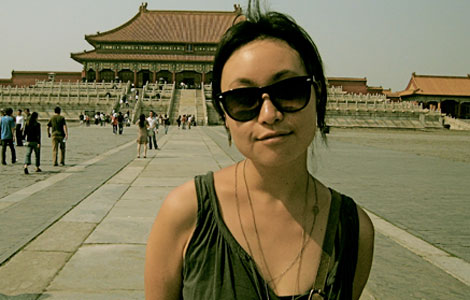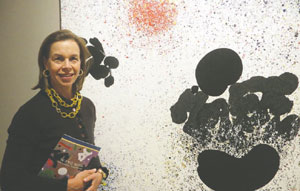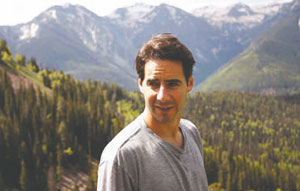Overseas Chinese alumni form emergency aid fund
2013-05-13 11:44:32
New York-based alumni of Peking University have established an emergency-assistance fund for Chinese students in the United States, inspired by the impact of the Boston Marathon bombing.
Athletes reunited after '73 trip
2013-05-13 11:44:32
In June 1973, a group of 10 American swimmers and divers embarked on what was then described as a "rare and unique" trip to China.
 China's swimming legacy makes splash
China's swimming legacy makes splash
At home with the Jangs, the 'Chinese Brady Bunch'
2013-05-10 11:18:37
In the summer of 1973, a college student named Michael Jang took a photography workshop in San Francisco. His classroom assignments required that he take photos of the people around him, and his Chinese-American family quickly became his favorite subject.
A debt to her heritage
2013-05-10 11:18:37
 When the poet Lynn Xu was a child in Shanghai, she was diagnosed with a severe allergy to the sun. As a result, she spent long days indoors with her grandmother, pouring over classical Chinese poems. Brimming with evocative images of lonely men on snow-ringed lakes and mountains, the poems made an ineradicable impression. Through the playful rhythms of an art form known for its meditative images, she came to view language and the world in a distinctive manner that shapes her writing even today.
When the poet Lynn Xu was a child in Shanghai, she was diagnosed with a severe allergy to the sun. As a result, she spent long days indoors with her grandmother, pouring over classical Chinese poems. Brimming with evocative images of lonely men on snow-ringed lakes and mountains, the poems made an ineradicable impression. Through the playful rhythms of an art form known for its meditative images, she came to view language and the world in a distinctive manner that shapes her writing even today.
Young yangqin master aims high
2013-05-10 11:18:37
 When Lu Jing applied for a Columbia University graduate program in stage management in 2010, her friends feared she might give up the musical instrument she had been playing since age 4.
When Lu Jing applied for a Columbia University graduate program in stage management in 2010, her friends feared she might give up the musical instrument she had been playing since age 4.
Graduates encounter difficulties in US
2013-05-10 11:18:37
Sophia Su, who will graduate with a master's degree in communication from Michigan State University this year, seems relaxed, even though almost all of her classmates are anxious about their next destination after graduation.
Artist uses her brush to aid quake victims
2013-05-08 11:15:07
When Yan Weihong sent images to Sibylle Schwarz of the earthquake that struck Ya'an city in Sichuan province, China, in April, the German artist got out her brush.
Chinese artist's abstractions on display
2013-05-06 11:23:47
 Wang Ming's journey has been long, but his passion for painting remains unflappable, even in his 90s.
Wang Ming's journey has been long, but his passion for painting remains unflappable, even in his 90s.
Storyteller embraces humor to depict life in China
2013-05-03 11:25:45
 On a visa run to Hong Kong in 1999, Peter Hessler made a stop in a tiny village with competing rat restaurants.
On a visa run to Hong Kong in 1999, Peter Hessler made a stop in a tiny village with competing rat restaurants.
Academic elected into US science academy
2013-05-03 00:56:06
The recent election of a Chinese scientist to a leading US academy after being shunned by the Chinese Academy of Sciences has sparked debate.
It's so now
2013-04-28 07:15:06
 When sculptor Joel Shapiro went to work designing a massive sculpture for the new US consulate in Guangzhou, he didn't conceive it as "birdlike". That's the recurring adjective when people describe the finished piece, Now, and Shapiro doesn't mind a bit.
When sculptor Joel Shapiro went to work designing a massive sculpture for the new US consulate in Guangzhou, he didn't conceive it as "birdlike". That's the recurring adjective when people describe the finished piece, Now, and Shapiro doesn't mind a bit.
The Cheng² Duo play for new classical works
2013-04-26 15:41:56
 When Bryan Cheng was 3 years old, he watched his older sister Silvie play the piano onstage and realized he wanted to play an instrument, too.
When Bryan Cheng was 3 years old, he watched his older sister Silvie play the piano onstage and realized he wanted to play an instrument, too.